This month, changes to the main Western sanctions programs have focussed on efforts to shore up existing statutes in relation to Russia’s invasion of Ukraine by closing loopholes and extending trade restrictions and criteria for designations. Significant new measures have included:
- On 21st July the UK adopted OFSI’s latest round of trade restrictions which extended current measures by prohibiting the provision of professional services to persons connected with Russia, including Russian residents temporarily located in another country, prohibiting the importation, acquisition, supply or delivery of Russian-origin gold, banning the export of energy-related goods to Russia, regardless of the eventual point of use, and also prohibiting the making available of energy-related goods to any persons connected with Russia. Designations included media organisation United World International, which had previously been designated under OFSI’s cyber program.
- OFSI further extended its Belarussian sanctions program, expanding the criteria for designation to those providing logistical support to the Russian army, spreading disinformation, or acting in sectors deemed to be of economic or strategic significance to the government’s support of the invasion. Transport-related amendments have prohibited Belarussian ships from entering UK ports and conferred on the Secretary of State the powers to detain Belarusian ships at UK ports or anchorages.
- On 22nd July the EU Council adopted its 7th sanctions package, containing a series of amendments designed to close existing loopholes and extending the terms of current measures. These measures included adding Russian-origin gold to the list of goods prohibited for purchase, import or sale under the bloc’s trade restrictions, an expansion of the scope of the prohibition on accepting deposits to include those from legal persons, entities or bodies established in third countries and majority-owned by Russian nationals or people residing in Russia, and an extension of the list of controlled items which might contribute to Russia’s military or technological enhancement. New designations included Nightwolves, a motorcycle group whose members have been deemed propagandists.
- On 4th July the European Council requested the consent of the European Parliament to add violation of sanctions to the list of “EU crimes”. The Council contended that this would allow them to establish minimum rules on the definition of criminal offences, ensuring consistency in sanctions enforcement across Member States; the EU parliament gave its consent on 8th This was followed by EU Commissioner Mairead McGuiness announcing that the bloc is exploring additional ways to strengthen enforcement, perhaps by working towards the establishment of an EU-wide equivalent of OFAC.
- On 9th July UN Special Rapporteur Alena Douhan issued a Guidance Note on overcompliance with unilateral sanctions and its harmful effects on human rights. The note suggests that overcompliance via, for example, blocking all financial transactions with a sanctioned country, entity, or person, may make costly, deter, or even prevent the purchase and shipment of humanitarian aid. It recommends that banks and other financial institutions review their compliance policy to determine if their restrictions are broader than those required by sanctions.
- Non-Russia-related measures this month included the US imposing visa restrictions on 28 Cuban officials who were said to have been linked to the repression of peaceful protests in July 2021 and the listing of two people and 13 entities said to be linked to the illicit sale and shipment of Iranian petroleum and petrochemical products.


